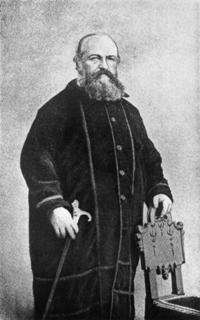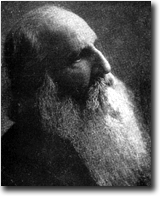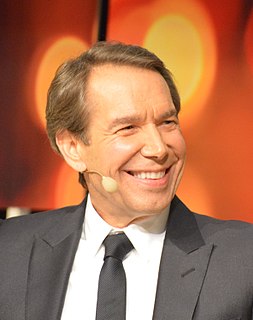A Quote by Ayn Rand
An artist recreates those aspects of reality which represent his fundamental view of man's nature.
Related Quotes
When one speaks of humanity, the idea is fundamental that this is something which separates and distinguishes man from nature. In reality, however, there is no such separation: "natural" qualities and those called truly "human" are inseparably grown together. Man, in his highest and noblest capacities, is wholly nature and embodies its uncanny dual character. Those of his abilities which are terrifying and considered inhuman may even be the fertile soil out of which alone all humanity can grow in impulse, deed, and work.
Hermeticism is the science of nature hidden in the hieroglyphics and symbols of the ancient world. It is the search for the principle of life, along with the dream (for those who have not yet achieved it) of accomplishing the great work, that is the reproduction by man of the divine, natural fire which creates and recreates beings.
From my point of view, he can be called a remarkable man who stands out from those around him by the resourcefulness of his mind, and who knows how to be restrained in the manifestations which proceed from his nature, at the same time conducting himself justly and tolerantly towards the weaknesses of others.
All the lies and evasions by which man has nourished himself civilization, in a word is the fruits of the creative artist. It is the creative nature of man which has refused to let him lapse back into that unconscious unity with life which characterizes the animal world from which he made his escape.
The director’s task is to recreate life, its movement, its contradictions, its dynamic and conflicts. It is his duty to reveal every iota of the truth he has seen, even if not everyone finds that truth acceptable. Of course an artist can lose his way, but even his mistakes are interesting provided they are sincere. For they represent the reality of his inner life, of the peregrinations and struggle into which the external world has thrown him.
It is alone that part of the external universe which we call material which acts on man through his senses - that part of which we ordinarily feel our knowledge to be the surest; but in reality, strangely enough, as will soon appear, this is one of the aspects of the external world, of which we can know nothing.
I believe in sensuality. I believe in sex. I believe in the survival of the species. I like aspects of things that are ethereal, but I like the reality of nature and embracing the way nature works, and aspects of interrelationships between male-female, aspects of the body, the way the body has changed over thousands of years . . .
How shall we define occultism? The word is derived from the Latin occultus, hidden; so that it is the study of the hidden laws of nature. Since all the great laws of nature are in fact working in the invisible world far more than in the visible, occultism involves the acceptance of a much wider view of nature than that which is ordinarily taken. The occultist, then, is a man who studies all the laws of nature that he can reach or of which he can hear, and as a result of his study he identifies himself with these laws and devotes his life to the service of evolution.
The beauty of the person of Christ, as represented in the Scripture, consists in things invisible unto the eyes of flesh. They are such as no hand of man can represent or shadow. It is the eye of faith alone that can see this King in his beauty. What else can contemplate on the untreated glories of his divine nature? Can the hand of man represent the union of his natures in the same person, wherein he is peculiarly amiable? What eye can discern the mutual communications of the properties of his different natures in the same person?
Our science fails to recognize those special properties of life that make it fundamental to material reality. This view of the world - biocentrism - revolves around the way a subjective experience, which we call consciousness, relates to a physical process. It is a vast mystery and one that I have pursued my entire life.





































